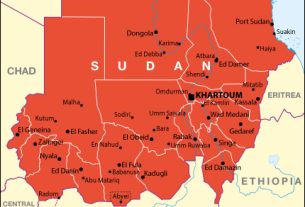18 September 2025 — A sprawling, multibillion-dollar fraud industry has taken root across Southeast Asia, driven by sophisticated criminal syndicates and increasingly staffed by victims of human trafficking. These operations—often referred to as “fraud factories”—have evolved from defunct gambling centers into high-tech scam compounds, exploiting vulnerable individuals and posing a growing threat to global security.
Anatomy of the Syndicate
Criminal networks, many with ties to Chinese organized crime, have repurposed abandoned casinos and hotels into cyberfraud hubs. Victims, trafficked under false pretenses of employment, are coerced into executing scams ranging from investment fraud to impersonation schemes using deepfake technology. Facilities such as KK Park and Taichang in Myanmar have become notorious for detaining and forcing victims into online criminality.
The syndicates exploit weak governance, porous borders, and limited law enforcement coordination across the Mekong sub-region. Victims are often controlled through deception, violence, and debt bondage, while the profits fund further criminal expansion.
Global Implications
The rise in deepfake-enabled scams and cross-border digital fraud has triggered national security concerns. Between 2022 and 2023, Southeast Asia saw a 1,530% increase in deepfake-related fraud, prompting warnings from governments in Malaysia, Singapore, and Indonesia.
Recommendations for International Law Enforcement
To counter this transnational threat, coordinated global action is essential. Recommendations include:
- Enhanced Intelligence Sharing: Agencies such as INTERPOL, EUROPOL, and the FBI should establish dedicated task forces to track trafficking-linked fraud networks and share actionable intelligence across jurisdictions.
- Joint Operations and Extradition Protocols: Multilateral agreements should facilitate joint raids, arrests, and extraditions of key syndicate leaders operating across borders.
- Technology Monitoring and Regulation: Invest in AI-driven tools to detect deepfake content and fraudulent digital activity, and enforce stricter controls on platforms used to propagate scams.
- Victim-Centered Approaches: Recognize trafficked individuals as victims, not perpetrators, and ensure access to legal aid, repatriation, and rehabilitation.
- Support for Regional Law Enforcement: Provide training, funding, and technical support to Southeast Asian police forces to dismantle scam compounds and protect vulnerable populations.
As the fraud industry continues to evolve, a unified global response is critical to dismantling these networks and safeguarding both victims and digital economies.
Sources: .



